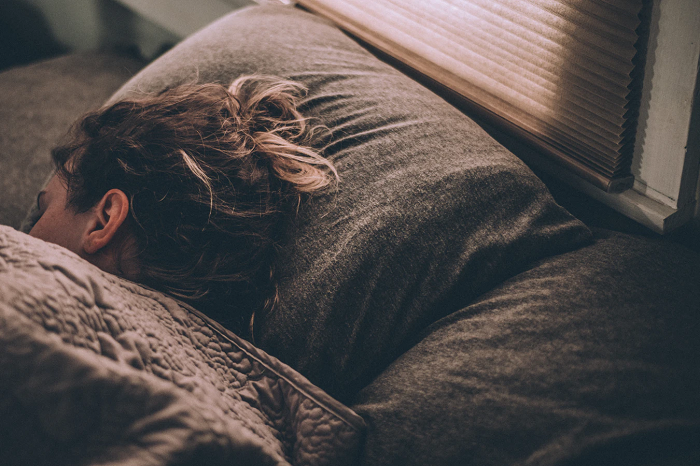BLOG
Get Your Morning Routine Rolling with These 3 Helpful Tips
By Meghen Jones
Back to the blog
Sleep… don’t we all love it? Well, college students certainly need it. It’s what helps them overcome the hurdles of a hectic routine. But snooze buttons have been detrimental to college students ever since the invention of alarm clocks—and if you succumb to their looming power, you’ll either be rushing to get dressed, skipping breakfast, or showing up late to class. However, you cannot let “five more minutes” stand between you, your college diploma, and more importantly, your future. You may not be a morning person, but you’ll want to be a motivated individual. This thought alone should push you to get up and get things done.
To be successful in university, you must remain diligent and accept all responsibilities, especially waking up on time and getting to class in a timely manner—no matter how tired you might be from the previous night—whether you were studying hard or partying hard. Believe it or not, stabilizing your sleep routine can be an easy fix. Instead of wasting your evening surfing the web for the perfect strategy, take a look at uCribs’ 3 pointers for success when it comes to waking up once the rooster crows.
First, always choose sleep over fun.
As a college student, you’ve definitely missed out on a good night’s sleep more than you care to admit. Between school assignments and your social life, it’s no wonder why sometimes you deprive yourself of some very essential ZZZ’s. So now, you have to sleep every spare chance you get in order to catch up. Power naps, anyone? As great as naps can be, though, they don’t work for everyone and can leave you with sleep inertia—you know, that groggy feeling you have when you wake up slightly disoriented from your nap.
For this reason, you must prioritize your to-do list and nix any social obligations that might hinder your academic commitments. Although we definitely recommend having fun, an overloaded social calendar will certainly drain your energy, and in turn, your productivity. So, stop sacrificing sleep to have a good time. The earlier you go to bed, the more sleep you will get! Now, that’s one math equation you don’t have to study too in-depth. We can promise you that your friends—and the parties— will still be there once the weekend rolls around. Then, you can make up for lost time!

Next, read a book— instead of using your phone before bed.
It’s a common scenario: you’re lying in bed, your phone is in-hand, and the most recent InstaStories popping up on your IG feed have caught your attention. Whether you care to admit it or not, carelessly browsing your social media feeds have become a part of the bedtime routine of many. But, did you know that using technology before bed can affect your sleep? According to UC Davis’ Student Health and Counseling Services, the blue light emitted from your smartphone, laptop, or tablet’s screen decreases your sleep hormone, melatonin, and increases alertness—all while resetting your body’s internal clock and damaging your retinas.
Instead of your usual bedtime routine, we advise you to power off your devices at least one hour before going to bed. If you find it difficult to limit screen time, try putting your phone in a different room and finding other nighttime activities to do, like reading a book for pleasure as you wind down. Studies have proven that reading reduces stress and anxiety, which can keep you awake throughout the night. Reading, however, relaxes your mind and body, so that you can drift off into a peaceful slumber. Oh, that sweet, sweet sleep… hopefully, it’s something you come to know once more.
And remember, eliminate any excess caffeine from your diet.
It’s no surprise that caffeine is a college student’s best friend. How couldn’t it be when your life has become teeming with late-night study sessions and early-morning lectures? As much as we all enjoy coffee, we can’t just ignore the effects that it has on sleep, especially before bed. Research shows that consuming caffeine before bed poorly affects sleep time, efficiency, and quality. It also interrupts any regular sleep pattern you may have established and is often linked to insomnia. As if you don’t already have enough to worry about—much less a case of insomnia, right?
While we understand that it’s not easy to give up the caffeine, we’d like to introduce you to a healthy, soothing alternative. Consider drinking caffeine-free drinks, like green tea, to keep you satisfied without negatively effecting your much-needed rest. Green tea improves the quality of your sleep, boosts your energy levels, and helps to reduce anxiety with its L-theanine ingredient. Sounds pretty magical, but it is true!
Initially, it won’t be easy transitioning into waking up early on your own accord, but it’s all a part of growing up and accepting responsibility as a blossoming and productive adult. Sure, you might experience low energy levels during the first couple of weeks—just keep in mind that it’s completely normal as your body adjusts to your new schedule. If you remain vigilant, eventually, waking up early will become second-nature. By carefully picking and choosing your late-night fun, powering off all electronics before bedtime, and eliminating caffeine, you’ll be plenty enough rejuvenated for the busy day ahead. So, what are you waiting for? It’s time to get on board and improve your sleep health!
Share this article:

